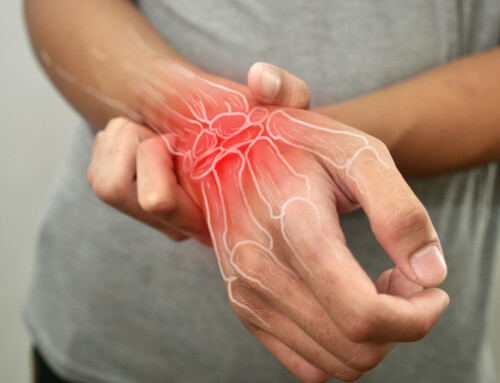By Stephanie Mason, SPT
Following traumatic injuries such as car accidents, sports injuries and falls, two commonly reported head and neck injures are concussions and whiplash. Although these injuries can occur simultaneously, it is important to recognize the difference between these two injuries and how to properly treat them.
Whiplash
Whiplash is a neck injury that results from a high velocity sudden movement of the head and neck. When this force occurs, the neck muscles can not react quickly enough to stabilize the head and neck and become damaged. Damage to the neck muscle and tendons can lead to pain and disability. Symptoms of whiplash include headaches, neck stiffness, pain with neck movements and tenderness to the head or neck. These symptoms may start immediately after injury or may take several hours to begin. Seeking immediate medical care if you have experienced a head or neck trauma to ensure you have not experienced a more severe injury such as a neck fracture.
Concussion
A concussion is a mild traumatic brain injury (mTBI) caused by a direct impact to the head, neck or face. However, concussions can also result from a high velocity jolting movement of the head and can occur with or without loss of consciousness. Impact on the brain causes inflammation and possible damage to the brain tissue. Concussion are a highly complex injury that can cause symptoms that can last days to weeks. In some cases, symptoms persist for several months and can cause long lasting effects. Unfortunately, 5 out of 10 concussions are not reported and 5% to 58% of people who experience a non-sports related concussion will have persisting symptoms that last weeks to months following their injury. Raising awareness of what concussion are and how to properly manage them, may help people reduce their chance of developing long-term effects of a concussion.
Symptoms of concussions vary greatly depending on which area of the brain is affected and the severity of injury. Some common symptoms include but are not limited to:
Physical symptoms — headache, nausea, fatigue, visual disturbance, light sensitivity, dizziness, balance problems, neck pain
Cognitive symptoms — brain fog, difficulty concentrating, memory deficits
Sleep – related symptoms — drowsiness, sleeping less, sleeping more, trouble falling asleep/staying asleep
Emotional symptoms — irritability, sadness, nervousness, difficulty managing emotions
How can physical therapy help?
If you have experienced a head or neck injury, you should seek medical attention immediately. Once more severe injuries have been ruled out, such as a neck fracture, spinal cord injury or traumatic brain injury, a physical therapist can be one of many healthcare providers that can help manage symptoms and recovery. Physical therapists perform an evaluation and treat specific impairments that limit individuals ability to perform daily tasks, sports activities and recreational activities. Exercises can address limitations in strength, range of motion, balance, coordination, and discuss ways to manage other symptoms to help individuals return to usual activities without limitations. All physical therapists have the ability to evaluate and treat both injuries, however, some physical therapists have specialty certifications and additional training to address symptoms that result from concussions and whiplash.
References
Rebbeck, T., Evans, K., & Elliott, J. M. (2019). Concussion in Combination with Whiplash-Associated Disorder May Be Missed in Primary Care: Key Recommendations for Assessment and Management. Journal of Orthopaedic & Sports Physical Therapy, 49(11), 819–828. https://doi.org/10.2519/jospt.2019.8946
Physical Therapy Guide to Concussion. Choose PT. (2018, March 7). https://www.choosept.com/guide/physical-therapy-guide-concussion
Allen, M. (2023, January 21). How do you know if you have a concussion?. Cognitive FX. https://www.cognitivefxusa.com/blog/how-do-you-know-if-you-have-a-concussion#:~:text=Yes%2C%20you%20can%20have%20a,and%20causing%20an%20inflammation%20response






